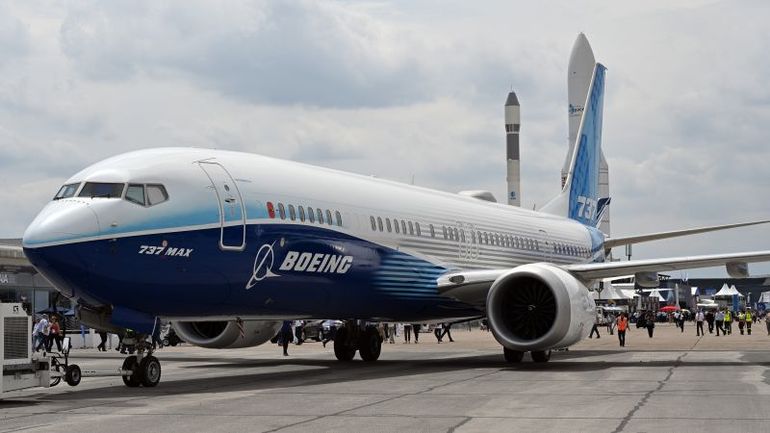
Boeing's Order Surge Driven by Unapproved Aircraft Deal

Boeing saw a resurgence in commercial jet orders in the latest report, primarily driven by a substantial order from American Airlines. However, the notable increase stems from the purchase of an aircraft that is still awaiting approval from the Federal Aviation Administration for passenger operations.
Boeing received a boost in commercial jet orders in March, primarily driven by a significant order from American Airlines. The airline ordered 85 units of the Boeing 737 Max 10, the largest variant of the aircraft that is yet to be approved by the Federal Aviation Administration for passenger operations. Additionally, American Airlines converted its previous order of 30 Boeing 737 Max 8 aircraft into additional orders for the Max 10 version. Furthermore, the airline has the option to purchase an additional 75 Max 10s in the future.
Boeing announced the order a month ago, which was also included in their March and first quarter sales and delivery report released on Tuesday. The report revealed that there were no other orders for any version of the 737 Max. In addition to American Airlines' significant Max order, Boeing also received orders for 28 of its widebody 777 jets during the same month.
However, the certification process for the Max 10, which was initially planned to begin passenger flights this year, has been delayed. This decision followed the incident on January 5 involving an Alaska Airlines flight using a 737 Max 9, where a door plug blew out, resulting in a large hole in the side of the aircraft.
Boeing had to ask the FAA for a waiver to certify the Max 10 and a smaller Max 7 model due to questions about anti-icing equipment on the engines. However, after facing criticism for safety and quality controls following the Alaska Air incident, Boeing decided to withdraw its request for a waiver. This led to a temporary halt in the certification process.
The door plug incident at United Airlines led CEO Scott Kirby to announce that the airline was no longer relying on the 737 Max 10 planes it had ordered from Boeing. Kirby referred to the problem as the final straw for the airline's expectations of the plane. While United has not canceled its orders for the Max 10, Kirby mentioned the airline's interest in potentially purchasing planes from Boeing's competitor, Airbus. However, United may have to wait longer to receive planes from Airbus due to the backlog of orders the European aircraft manufacturer currently has.
Boeing had a great month for commercial jet orders in December, ending a successful year for sales. However, after the Alaska Air incident in January, orders significantly dropped, making it the worst month for Boeing since the pandemic. In February, Boeing only reported 15 orders, which is much lower to their usual monthly volume.
The recent order from American Airlines is crucial for Boeing, as the airline's fleet is divided between Airbus and Boeing. It shows confidence in Boeing despite the uncertainties surrounding the certification of their planes. Pre-certification orders are common in the aerospace industry, but usually not during times of uncertainty regarding when the planes will be approved for passenger use.
Boeing faced challenges in delivering aircraft in the month, with only 24 of the 737 Max jets and five 787 Dreamliners making it to customers. The company's production has been impacted by concerns about quality control following the Alaska Air incident. This slowdown in deliveries has caused issues for airlines like United, leading to a freeze on pilot hiring and requests for pilots to take voluntary unpaid leave.
Southwest Airlines has also adjusted its hiring plans in response to Boeing's reduced 737 Max deliveries. The airline will bring on 50% fewer pilots and 60% fewer flight attendants than originally planned for this year, as Boeing has cut deliveries to Southwest by approximately 40%.
Editor's P/S:
The recent developments surrounding Boeing's commercial jet orders paint a complex picture. While the company received a significant boost from American Airlines' order for 85 Boeing 737 Max 10 aircraft, concerns about the ongoing certification process and recent incidents have cast a shadow over the industry. The delay in certifying the Max 10, coupled with the Alaska Airlines incident, has raised questions about Boeing's safety and quality controls, leading to some airlines reconsidering their orders.
Despite these challenges, it is important to note that pre-certification orders are common in the aerospace industry. Airlines often place orders for aircraft that have not yet been fully certified, based on their confidence in the manufacturer and the anticipated performance of the aircraft. While the current situation presents some uncertainty, it is too early to determine the long-term impact on Boeing and the industry as a whole. The company has taken steps to address concerns, including withdrawing its request for a waiver for the Max 10 and a smaller Max 7 model, and it remains to be seen if these measures will restore confidence and lead to a resumption of normal operations.













